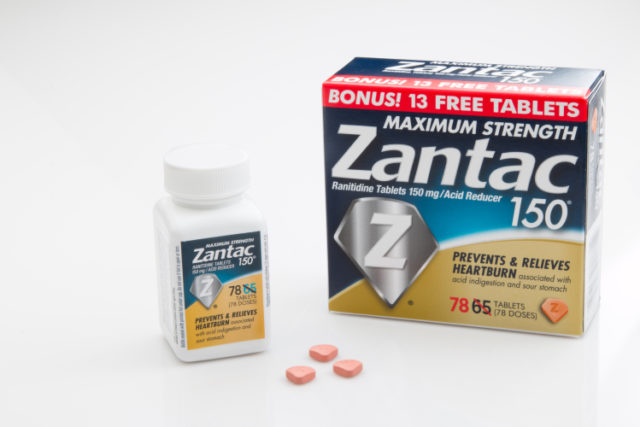
Zantac is a non-prescription drug taken by people who suffer from gastroesophageal reflux disease (GERD) and other conditions caused by excessive stomach acid. It works by regulating the amounts of acid in the digestive system to relieve symptoms like stomach pain, heartburn, and persistent coughing.
This medication was originally sold in pharmacies as an over-the-counter medicine, which means anyone can purchase it without a prescription. Many people who suffered from heartburn and other stomach acid-related conditions regularly took the drug to ease their health problems.
However, studies found an impurity in the drug, which eventually lead to its recall. Many consumers claimed that they developed several complications due to the drug and filed lawsuits against Zantac manufacturers.
Complications From Taking Zantac
The FDA ruled that Zantac may be dangerous after finding traces of a cancer-causing compound called N-nitrosodimethylamine (NDMA). This particular compound is classified as a potential carcinogen in humans if consumed in high doses.
Even though the initial amounts of NDMA in Zantac and its generic counterparts were ruled out for safety reasons, external factors such as heat exposure made the drug dangerous.
Under extreme temperatures, NDMA levels in ranitidine can significantly increase, which may cause different forms of cancer. Aside from the possibility of developing cancer, Zantac also had many side effects, such as vomiting, stomach pain, nausea, liver failure, and Vitamin B-12 deficiency.
Can Zantac Cause Cancer?
Due to the alarming levels of NDMA found in Zantac and its generic counterparts, the FDA ordered its recall from all pharmacies and stores. Like Drug Injury News, various sources published details on the drug and its possible effects to warn users to stop taking the medication. However, prior to the recall, millions of Americans were already prescribed Zantac and other ranitidine medications.
The people who took Zantac regularly had the highest risk of developing health complications. Once ingested, the NDMA found in ranitidine can inflame the liver and cause vomiting, nausea, and liver failure. In addition, taking Zantac regularly may also result in several forms of cancer, like kidney and lung cancer, since other organs can also be affected by NDMA.
It wasn’t long before patients sued Zantac due to the health complications they experienced after taking the drug.
Lawsuits Against Zantac

While consumers were deprived of important information and continued to take the medication, Zantac manufacturers profited from the drug’s sales. In 2018, one form of Zantac recorded USD$128.9 million in sales.
One of the cases filed against Zantac was from Joseph Galimidi. He began using Zantac to treat his acid reflux and heartburn in 2009. Galimidi was then diagnosed with breast cancer in 2013 and claimed that the drug was responsible for his condition. He then filed a lawsuit asking for compensation against Sanofi, one of the manufacturers of the drug.
In 2019, class action lawsuits against Zantac manufacturers Sanofi and Boehringer Ingelheim were filed in California’s Northern District. The plaintiffs claimed that the omission of important information about the drug endangered the lives of patients who took it. Most cases asked for compensation for medical bills, death, disability, loss of wages, and moral damages.
As of October 2020, more than 500 Zantac cancer lawsuits were filed against several drug manufacturers. However, there are still no settlements made, and cases are still pending in court.
Conclusion
The Zantac case is an unfortunate event for many consumers who trusted and took the drug, believing it’ll resolve their health problems. Instead of improving their condition, they experienced severe complications that changed their lives. Although there are hundreds of cases against Zantac asking for compensation, no amount of money can make up for the damages caused by the drug.












